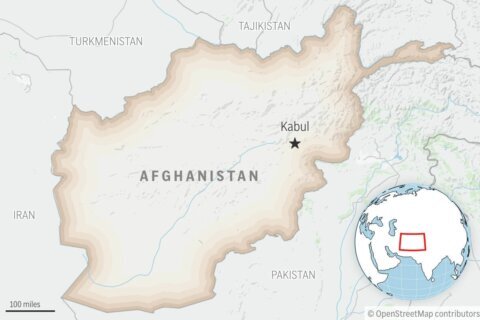The District government is going off the reservation for its electricity supply, preparing a utility-sized solicitation to purchase a third of its power from alternative sources.
The Department of General Services recently retained Customer First Renewables LLC to craft a request for proposals for long-term electricity supply generated through wind or solar energy. The District-based company, hired on a sole-source basis, will be paid $180,000.
The District uses roughly 400 million kilowatt-hours of electricity annually, all of it purchased from Washington Gas Energy Services Inc., said Sam Brooks, the DGS associate director for energy and sustainability. The District budgeted $52 million for electricity this fiscal year.
The plan, Brooks said, is to diversify the District’s energy portfolio, hedge against volatility in the electricity market and decarbonize the supply by shifting 150 million kwh to, most likely, wind.
“Very candidly, it’s cheaper to buy wind than it is to buy traditional electricity now, if you do it on a utility scale,” he said.
The wind- energy purchase, a top priority for DGS Director Brian Hanlon, will likely require the construction of a new wind farm, perhaps in Pennsylvania or Virginia, to supply electricity to D.C. over Pepco’s existing transmission lines. While there are wind farms with some unused capacity, few if any have enough to meet the District’s requirement, Brooks said.
DGS documents suggest D.C. will seek to execute “power purchase agreements” with an electricity generator for renewable energy installations. The purchase agreement would allow the District to leverage private capital and not leave the city with outstanding debt.
A handful of large businesses have switched to renewable sources for their electricity, including Google Inc. for its data centers, but few governments have done the same, Brooks said. That’s why D.C. needs help putting together its RFP.
“There’s no playbook for what we’re doing,” Brooks said.
A request for information released in February brought two dozen responses, and the DGS expects significant interest in the RFP when it goes out later this month.
The goal is to strike a deal with a new supplier before the end of the year so D.C. can take advantage of the soon-to-expire Federal Renewable Energy Production Tax Credit. That credit, Brooks said, is worth about a third of the project’s value.
“We are doing this with all due consideration,” he said, “but there’s a clock that’s ticking.”
D.C. hopes to save north of $100 million over 20 years by reducing its exposure to energy-market volatility and locking in a long-term rate.
“This deal almost certainly will provide electricity on day one for less than we’re purchasing electricity for now,” Brooks said.






